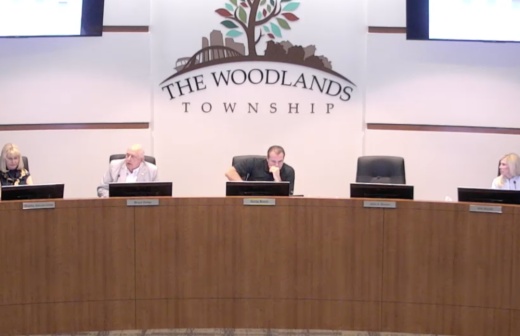At the first budget workshop on the morning of Aug. 22, President and CEO Monique Sharp outlined the expectations for fiscal year 2023, which runs from January to December.
Taxable values in the township increased from $21.75 billion to $24.89 billion from 2021 to 2022, which means a lower tax rate will generate the same amount of revenue in 2023, according to the township.
The 2022 property tax rate is $0.2231 per $100 valuation, but the no-new-revenue tax rate for 2023 is $0.1964, according to Sharp. Budget workshops through the rest of the week will determine the final proposed tax rate, but officials said they will start with the $0.19 per $100 valuation figure in mind as the maximum. At that rate, $2.4 million in excess funds will be generated, Sharp said.
For FY 2023, sales tax is expected to make up 45% of revenue, and property tax will make up 33% of revenue, among other sources.
Throughout the week during a series of morning meetings, the board will discuss budget initiatives, which determine expenditures above the base budget needs. Among the items that the township will budget for are improvements or rebuilds on Fire Stations No. 3, 4 and 5 as well as the emergency training center for the fire department.
Sharp said the board is also budgeting for a fully funded law enforcement department at $13.9 million. Montgomery County Commissioners Court in August indicated it would budget to bring costs for the 92 deputies it provides to the township under its umbrella pending contract discussions; however, the contracts have not been renegotiated, officials said at those meetings.
The budget also includes various reserve and fund balances, including funds for capital projects included in the budget this year, Sharp said. Undesignated reserve balances cannot be used to fund tax rate decreases, and they are used to fund one-time expenses, to pay off debt or to fund other reserves, Sharp said.
In response to a question from the public regarding reserve funds, Chair Gordy Bunch said the board can use reserves to help taxpayers by using them to offset contributions to the capital replacement reserves which are part of the budget.
The next budget meeting will be held at 8:30 a.m. Aug. 23.





